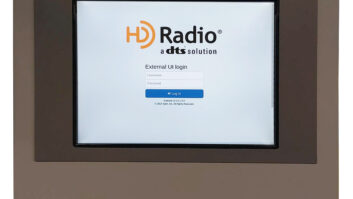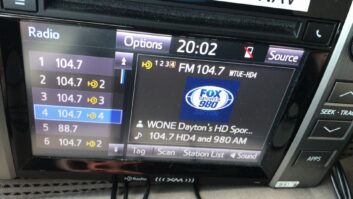HD Radio, or at least a *description* of HD Radio, is preferred over iPods. That’s one finding from a study completed by Mercury Research.
It said 53% preferred the description of HD Radio, which didn’t use that label, over the iPod; while 37% preferred iPod.
President Mark Ramsey said 51% of 18-34-year-olds preferred the “HD Radio” over the iPod, which was chosen by 43% in that age group; while 59% of 25-54s chose the HD Radio.
Among fans of various formats, he said, HD Radio had the advantage among news/talk listeners; among fans of CHR, urban and active rock, the iPod won out.
However, Mercury brings up two caveats, saying the results should not be exaggerated. Ramsey said this study involved a “trade-off” specific to those two media. “Ideally, such a trade-off should include items which are functionally equivalent – that is, they should deliver the same benefit. In this case, I don’t think they do.”
Ramsey stated, “A better question would be to trade off the preference for ‘HD Radio’ vs. the radios we all have now. Or iPods vs. another brand of MP3 player. It could be argued this tradeoff is like asking folks which they’d rather have, an iron or an HD Radio.”
Also, he said, HD and iPods are only part of the media puzzle; consumers can choose among terrestrial radio, satellite, cell phone, Internet streaming, podcasting and so on. Research into the preferences of consumers who are offered only a portion of that menu gives only a portion of the truth, Ramsey said.
He concludes, though, that in an artificial world where consumers choose only between two options, the one that’s easy and most familiar, such as radio, will be favored over one that’s more complicated. He noted that users need a computer to load music onto an iPod and must make decisions about music order.
The survey included 1,000 respondents, ages 12-54, including unlisted and cell-phone only respondents.
Study: HD-R Preferred Over iPods
Study: HD-R Preferred Over iPods












